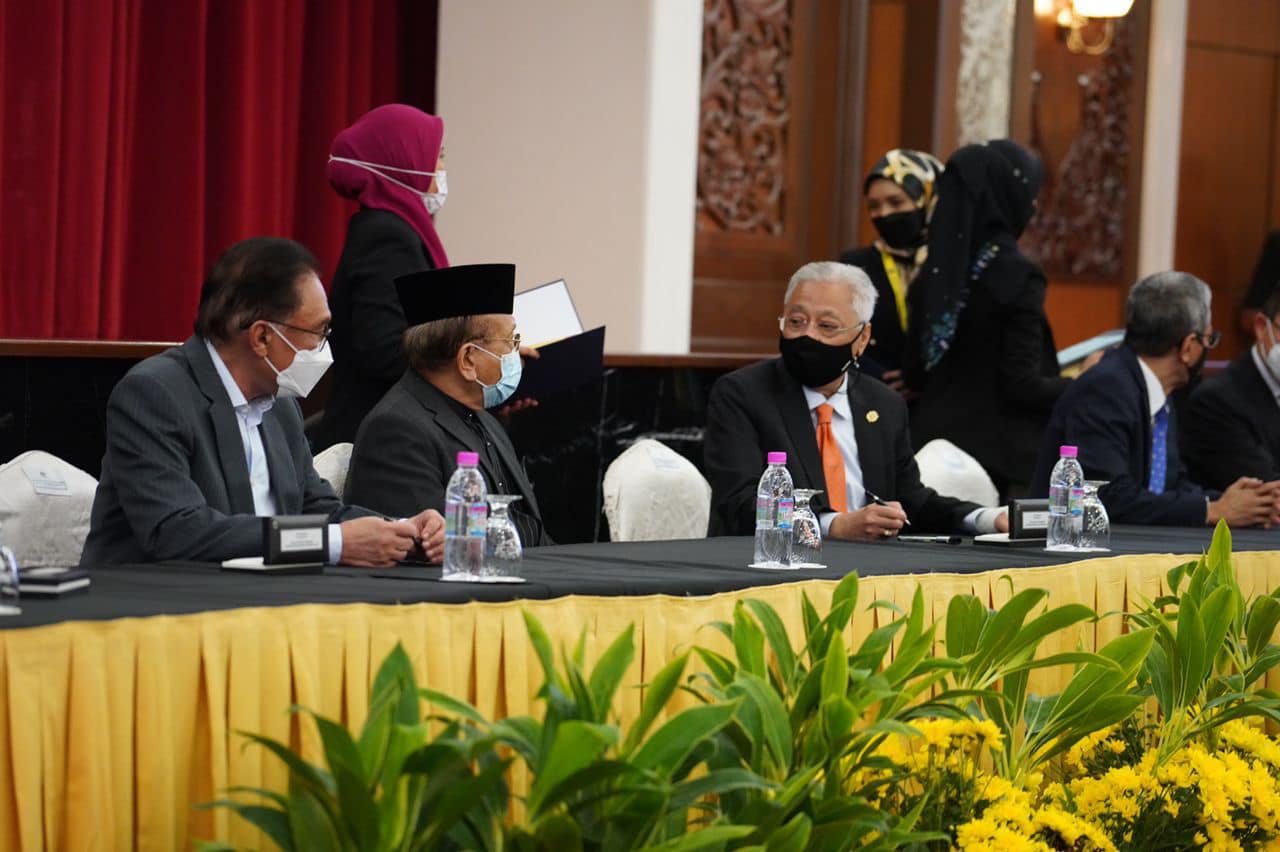PM Ismail's pact with opposition holds; budget sails through Malaysian Parliament
Sign up now: Get insights on the biggest stories in Malaysia

Malaysian Prime Minister Ismail Sabri Yaakob (right) with Pakatan Harapan chief Anwar Ibrahim (left) on Sept 13, when they inked the bipartisan deal.
PHOTO: ISMAIL SABRI YAAKOB/FACEBOOK
KUALA LUMPUR - Malaysian Prime Minister Ismail Sabri Yaakob has passed the first major test of his leadership with debate on Budget 2022 concluding in Parliament on Monday (Dec 13).
The measure survived unscathed largely due to a confidence and supply agreement (CSA) Datuk Seri Ismail inked with the main opposition coalition Pakatan Harapan (PH) in September. Under the deal, the Umno-led government committed to several democratic reforms and to injecting an additional RM45 billion (S$14.6 billion) for Malaysia's Covid-19 recovery programme.
Although there were misgivings over the budget, PH refrained from objecting to it in Parliament, indicating that the Prime Minister, who is Umno vice-president, will be shielded from a potential internal putsch by those seeking a snap election.
"Although there are additional allocations, they are still insufficient to ensure a fair budget for all. Increasing beyond Budget 2022's total of RM332 billion efficiently will not affect the debt or deficit much but could be critical in saving lives and livelihoods," PH said in November.
Numbering 90 in Parliament, PH lawmakers largely abstained during voting on each section of the budget.
"It is not unanimous, there are those who abstained," said PH's Beruas MP Ngeh Koo Ham in Parliament, correcting Speaker Azhar Harun at the conclusion of debates.
As part of the CSA, reforms such as lowering the voting age to 18 and elevating the status of eastern states Sabah and Sarawak as outlined in the Malaysia Agreement of 1963 are expected to be implemented by the end of the year.
Mr Ismail heads a government with an uneasy alliance comprising 114 members of the 222-seat Parliament, where two seats are currently vacant.
The alliance is made up of the same MPs and parties that propped up the previous Perikatan Nasional government led by Tan Sri Muhyiddin Yassin, who was toppled after just 18 months when an Umno faction led by its president Zahid Hamidi and former premier Najib Razak pulled their support for the Parti Pribumi Bersatu Malaysia president.
But with options such as backing PH chief Anwar Ibrahim or nominating Zahid and Najib - both labouring under graft charges - ruled out due to the political implications, Umno had to come to a compromise with Bersatu to rally behind Mr Ismail, who was deputy premier in the Muhyiddin administration.
Within Umno, calls for snap polls - despite the CSA specifying that Parliament will not be dissolved before August next year - have grown since the Barisan Nasional (BN) coalition it leads won by a landslide in the Melaka state election last month.
BN controls 42 seats in Parliament currently but hopes to nearly double that at the next general election, allowing its leadership - chaired by Zahid - to dictate terms instead of having to negotiate with Bersatu and other parties in the formation of a government.
Umno's supreme council resolved last week that its top five leaders would decide on the matter, according to deputy president Mohamad Hasan. But he added that the Premier is of the view that "now is not a good time for national polls (but) to work on reviving the economy and overcoming the Covid-19 pandemic".
Analysts believe Mr Ismail needs more time to entrench himself and potentially take over the reins in Umno to improve his chances for another term in power.


